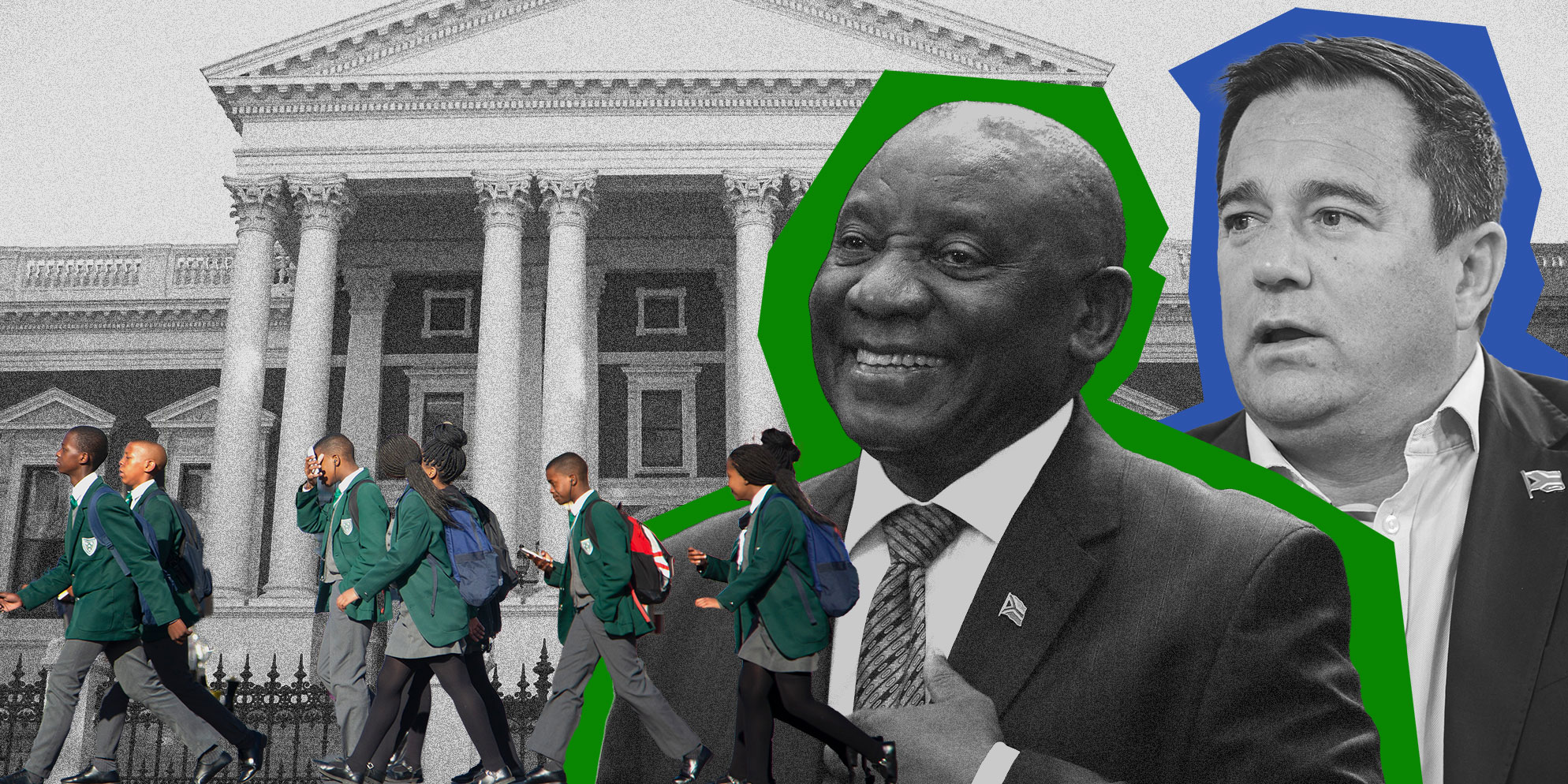On Friday, when he signed the Basic Education Laws Amendment (Bela) Bill into law, President Cyril Ramaphosa said there would be a three-month pause in the implementation of two key clauses dealing with language and admissions.
The clauses are the major points of contention for the DA, whose constituency is worried about who determines which child goes to which school.
Language is often a proxy for race, and some schools have a long history of serving Afrikaans communities, while around them live black children who want to learn in English.
Over time, as the number of Afrikaans schools has declined, those which remain become more important to that community, and more children will be transported there from further away.
As Stellenbosch University became a focal point for language arguments because it was the “last Afrikaans university”, so a small number of Afrikaans schools has become symbolic of the entire issue.
At the same time, the DA is deeply concerned about losing votes to the FF+, meaning that it has to oppose these clauses in the new law — whoever is seen to oppose it the loudest might well win votes.
Ramaphosa signing the Bill into law in public was a political act. The fact that Gauteng Premier Panyaza Lesufi attended the ceremony (and stood as close to Ramaphosa as he could) shows how important it was.
The ANC said it welcomed the “three-month period given by the President to engage on these matters of Clause 4 & 5, with those who are still concerned about the protection of their own languages”.
Mother-tongue education
The party said the new law would provide better “access to mother-tongue instruction”.
Mother-tongue education is a debate all on its own.
There is much evidence that children learn better in their home language. At the same time, one of the important (if sometimes unspoken) functions of our schooling system is to ensure there is diversity in our communities. While this occurs in suburbs, it does not happen in most township and rural areas.
However, if each child were taught in their mother tongue it would be harder to foster diversity in our society. And if we don’t, we may be condemning children to a very poor education.
This shows how difficult the trade-offs in education are and why they become so intensely political so quickly.
While Ramaphosa suspended the implementation of these two clauses for three months, he also said they would be instituted if negotiations failed.
He will force through these clauses despite the DA’s objections if necessary. The DA has already lost out here.
Last year, before the election, it claimed there were five reasons why the DA opposes the Bela Bill. However, only two clauses have been suspended, meaning that Ramaphosa has steamrollered the DA’s other complaints.
This may have been the primary aim of Ramaphosa’s decision to sign the Bill into law now. He wanted to show, both to the DA and to the ANC, that he was the boss, the centre with the real political power.
This may be a reminder to the DA that while it did win just over 20% of the votes in the election, the ANC garnered nearly 40% and is the bigger partner.
A relationship of convenience
That is not the end of the matter.
What will start to matter more is how the various parties are doing relative to one another — not just in national government, but in other spheres too.
The ANC is trying to retain power in Joburg and to remove the DA from power in Tshwane.
To do this, it is working with a party whose leader, Herman Mashaba, claimed he entered politics to remove the ANC from power. This suggests that its relationship with ActionSA is one of convenience and will not last very long.
All indications are that the ANC will suffer significant losses in the local government elections in two years.
This may well inform what looks like a desperate bid for power in these metros, as ANC leaders might believe this is their last chance.
It gives the impression that the ANC is losing power while other parties are consolidating or growing their support.
Political power is both about the political power a party possesses at present, and what people expect it will have in the future.
People group around candidates and parties they believe will have power in the future, which is why so many people who followed Julius Malema’s every word at the beginning of the year ignore him now.
As the perceived future power of parties in the coalition ebbs and flows, the power relationship between them ebbs and flows as well.
So, Ramaphosa may be able to force the DA to accept certain measures now, but not in the future. Or, if this dynamic reverses, the DA may have to make more and more concessions.
An analogy is a newlywed couple moving into their new home after the honeymoon and one asks the other, “Where should we put the TV?”
And so power will ebb and flow between them for years into the future. DM





